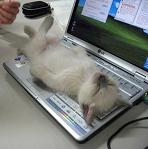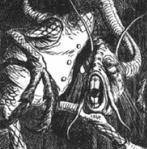CPAP May Not Cure Daytime Sleepiness
Re: CPAP May Not Cure Daytime Sleepiness
I still had daytime (actually afternoon) sleepiness after being on CPAP for 2 months (April & May '09). When I quit taking afternoon naps (when I felt sleepy) and consolidated my sleep just to night-time, my daytime sleepiness disappeared in about a week. Until seeing Muffy's recommendations on good sleep hygiene, I thought that taking a daily nap was a "good" thing for me to do. Now, finding myself more refreshed and fully awake during the day after sleeping just at night (avg 7 hours a night with two uptimes for a bathroom visit), I am no longer taking an afternoon nap (my last nap was May 27th). My nightly numbers (AHI & time-in-apnea) are very good most nights - I am still trying to figure out how to have very good numbers every night.
As prior posters have commented, reaching a conclusion such as "CPAP may not cure daytime sleepiness" without first determining and affirming that the CPAP therapy is effective, not just compliant, is not scientifically supportable.
As prior posters have commented, reaching a conclusion such as "CPAP may not cure daytime sleepiness" without first determining and affirming that the CPAP therapy is effective, not just compliant, is not scientifically supportable.
_________________
| Machine: AirSense™ 10 CPAP Machine with HumidAir™ Heated Humidifier |
| Mask: ResMed AirFit™ F30 Full Face CPAP Mask with Headgear |
| Additional Comments: CPAP Auto with Min 10, Max 12, and OSCAR |
I live in my body. I know my body better than anyone else in the world. I may consult a medical professional for advice, but no one, and I do mean NO ONE tells me what I am permitted to do. - Kiralynx
Re: CPAP May Not Cure Daytime Sleepiness
While "compliance" can be established with a fairly easy (even if arbitrary) definition, we unfortunately run into the difficulty of trying to define "effectiveness". If we start from the position that effective CPAP treatment will eliminate daytime sleepiness, then we have traveled full circle but arrived nowhere. While it is convenient to define "effective" treatment as "that treatment which works" (however we may choose to define "works"), it brings us no closer to explaining why there are some people who "do all of the right things" and yet find that the therapy does not "work". If we instead somehow define "effective" treatment operationally (arbitrarily including perhaps such factors as "proper" sleep hygiene, "sufficient" nightly blower time, "adequate" leak control, and "appropriate" pressure settings using the "right" machine), I suspect that we will still encounter some at least partial "failures" with any such definition.cinco777 wrote: As prior posters have commented, reaching a conclusion such as "CPAP may not cure daytime sleepiness" without first determining and affirming that the CPAP therapy is effective, not just compliant, is not scientifically supportable.
The circularity of the road involved in deciding that if an individual "fails" to achieve a less than superlative CPAP outcome, it must be due to some "inadequacy" in the treatment "process", is dizzying. The "you have to work at it to succeed" model, while practically sound (up to a point), is also inherently shaky. There are just too many variables, ranging from incomplete understanding of the pathophysiology of OSA, to imprecision in diagnosis (even with competent PSG), to the selection of "appropriate candidates" for CPAP, to choice of machine and mode and manufacturer and mask (are they all interchangeable "if only they work"?), to user knowledge and motivation. To claim "perfection" in outcome for the therapy, if only the user "does everything right", is a standard rarely demanded of any therapeutic intervention. The key underlying question may well be, Is this expectation rational? Are we to blame the patient (or even the physician) for any CPAP outcome less than perfect? Circles within circles.
It intrigues me that the post opening the door to discussion of what might be one of the "dark, dirty secrets" of the CPAP world, was initiated by Johnny. The underlying assumption, the raison d'etre, for this forum, is that knowledge and encouragement will increase the likelihood of success and the ease of CPAP therapy. With this I fully, ardently agree. But it is far too easy for this to devolve (especially with a cadre of "long-term" posters, among whose number I count myself) into an uncritical affirmation of the therapy itself (it happens in every sort of support group).
We need not abandon the goals of knowledge and encouragement, by consideration of the possibility that CPAP will not, perhaps cannot, be 100% effective in 100% of those who start it, or even in 100% of those who "do everything right".
Re: CPAP May Not Cure Daytime Sleepiness
I know this is taking the discussion in a different direction, but there is a many times larger group out there who hate, and in many cases have rejected, CPAP therapy. I expect the well-known existence of these legions to be driving innovators to develop a novel and easy therapy that they can make profits from. With this thought in the back of my mind, I happily and with forethought adopt the uncritical affirmation position but occasionally privately dream about the future trashing of my CPAP for the new easy therapy.Velbor wrote:..... But it is far too easy for this to devolve (especially with a cadre of "long-term" posters, among whose number I count myself) into an uncritical affirmation of the therapy itself (it happens in every sort of support group).
......
As for the French,
do they not have a similar rate of CPAP failure as the U.S.? If so, they may have 230,000 "CPAP rejectors" with daytime sleepiness and nighttime disaster."In France alone," lead author Dr. J-L. Pepin, from CHU de Grenoble, France, said in a statement, "we have 230,000 patients using CPAP. We calculate that at least 13,800 of those have residual daytime sleepiness."
Rooster
I have a vision that we will figure out an easy way to ensure that children develop wide, deep, healthy and attractive jaws and then obstructive sleep apnea becomes an obscure bit of history.https://www.youtube.com/watch?v=0ycw4uaX ... re=related
I have a vision that we will figure out an easy way to ensure that children develop wide, deep, healthy and attractive jaws and then obstructive sleep apnea becomes an obscure bit of history.https://www.youtube.com/watch?v=0ycw4uaX ... re=related
- goose
- Posts: 1382
- Joined: Sun Mar 11, 2007 7:59 pm
- Location: The left coast - CA... If you're not living on the edge, you're taking up too much space!!
Re: CPAP May Not Cure Daytime Sleepiness
My daytime sleepyness has been fairly non-existent during the 2+ years I've been on xPAP treatment. My AHI average is around 2 over the whole time.....johnnygoodman wrote:If Obstructive Sleep Apnea is being VERIFYABLY and EFFECTIVELY treated, and one's AHI is 2 or less with low leaks, I'd imagine that any further tiredness would come from lack of hours or from something unrelated to OSA.
The only time I have any daytime sleepiness is when I don't get enough sleep.....I generally average 8-10 hours a night since I started in xPAP.....but there are times when that is not possible.
The difference/issue that I've noticed since I started the treatment -- when I wake up in the morning I am in a grog until I've poured down some coffee. I wake up in a total fog.
Previous to my treatment, I was up around 4am and my "brain" was at 100% full speed when I got out of bed -- left for work about 4:30-4:45am . I could also drop off to sleep at the drop of a hat (well Duhhhhh!!!!).....my wife couldn't believe that I could get home from work at 10pm, be in bed and asleep by 10:15pm and be up again at 4am ready to boogie. She has to putz around for at least 2 hours before she can sleep after work (ER RN).....
Caveat -- I've been unemployed the entire time of my treatment. Where I used to bed down between 9pm and 10pm and got up about 4am, I now crash and burn about 1am (after Craig Ferguson) and I'm up between 8:30 and 9:30am.....
cheers
goose
_________________
| Humidifier: HC150 Heated Humidifier With Hose, 2 Chambers and Stand |
| Additional Comments: Also Use ComfortGel (s); Headrest (XL) and a PAP-Cap. |
Wars arise from a failure to understand one another's humanness. Instead of summit meetings, why not have families meet for a picnic and get to know each other while the children play together?
-the Dalai Lama
-the Dalai Lama
Re: CPAP May Not Cure Daytime Sleepiness
There's an echo in the room. That study doesn't mean much.
_________________
| Mask: TAP PAP Nasal Pillow CPAP Mask with Improved Stability Mouthpiece |
| Humidifier: S9™ Series H5i™ Heated Humidifier with Climate Control |
| Additional Comments: Bleep/DreamPort for full nights, Tap Pap for shorter sessions |
My SleepDancing Video link https://www.youtube.com/watch?v=jE7WA_5c73c
Re: CPAP May Not Cure Daytime Sleepiness
CPAP has changed my life. No doubt about it. However, it did not cure the daytime tiredness problem entirely. Further testing revealed hypothyroidism. That was corrected and energy level went up greatly. Further experimentation with my cholesterol meds showed that crestor was causing me to have daytime sleepiness and brain fog. Got off it and no more daytime sleepiness. Even before the latter changes though, CPAP improved my energy and I woke up refreshed and have been sleeping the night through for over a year now. Forgot to add that a switch from Claritin to Flonase for allergies stopped the need to get up once at night to urinate. Prostate size reduced off the Claritin. The point to all this---CPAP is not always the silver bullet itself. However, once you fix the apnea it's easier to figure out the rest.
- ricochetv1
- Posts: 181
- Joined: Sat Jul 04, 2009 4:37 pm
Re: CPAP May Not Cure Daytime Sleepiness
Well, mine will be a nice test of modern PAP technology...
I have 2 herniated cervical discs with a pinched nerve right down my arm. I often have to sleep on hydrocodone and Flexerill(sp?), thus sedated, just like they don't like it... I had my titration study last night, sans the aforementioned drugs. I'm going to push for the Resmed S8 Autoset II machine, which is an APAP, and the Mirage mask, since I'm a big-time mouth breather. Oh, and the tech told me this morning that I had a central apnea event this morning, so may even have to go bipap. I won't know until next week.
I will be sure to keep updated on my progress, given my set of conditions.
Oh, I also score at least 12 on the sleepiness scale, and fight sleep daily at work and other places, including while driving sometimes.
Add to that an 8-week old son, and my ass is literally being kicked upside and around.
Here I am, crossing fingers, and hoping for the night-and-day difference my brother said I should experience.
I have 2 herniated cervical discs with a pinched nerve right down my arm. I often have to sleep on hydrocodone and Flexerill(sp?), thus sedated, just like they don't like it... I had my titration study last night, sans the aforementioned drugs. I'm going to push for the Resmed S8 Autoset II machine, which is an APAP, and the Mirage mask, since I'm a big-time mouth breather. Oh, and the tech told me this morning that I had a central apnea event this morning, so may even have to go bipap. I won't know until next week.
I will be sure to keep updated on my progress, given my set of conditions.
Oh, I also score at least 12 on the sleepiness scale, and fight sleep daily at work and other places, including while driving sometimes.
Add to that an 8-week old son, and my ass is literally being kicked upside and around.
Here I am, crossing fingers, and hoping for the night-and-day difference my brother said I should experience.
Re: CPAP May Not Cure Daytime Sleepiness
I agree with Kathy and most other posters before - the only accurate way to determine this would be to only include those CPAPers who are using the therapy effectively, and whose numbers are good.kteague wrote:There's an echo in the room. That study doesn't mean much.
Too many times do we see posters who bemoan the lack of therapy effectiveness, but reject or refuse to accept suggestions or offers of assistance to correct this. Test or include any of them and the results would definitely skew.
When I picked up my machine, I was told that an AHI of 5 or less is a good outcome. Thanks to this forum, I have learnt I don't have to accept that. Over 2, I do feel a great difference. Zero to .5 is optimum, and makes my energy and concentration levels far better - and I achieve this every day. I'd hate to think how I'd feel on 4-5.
johnnygoodman wrote: If Obstructive Sleep Apnea is being VERIFYABLY and EFFECTIVELY treated, and one's AHI is 2 or less with low leaks, I'd imagine that any further tiredness would come from lack of hours or from something unrelated to OSA.
Having said that I do unaccountably suffer from daytime tiredness - and I've found other non-hosers do as well. Could be lack of exercise, poor diet that day or the previous....etc. I just think as hosers we're inclined unfairly to blame the therapy every time, and that may not be reasonable or accurate.thimarine wrote:Further testing revealed hypothyroidism. That was corrected and energy level went up greatly.
"You're just jealous because the voices only talk to me!"
- twasbrillig
- Posts: 76
- Joined: Fri May 30, 2008 1:39 pm
Re: CPAP May Not Cure Daytime Sleepiness
THANK YOU VELBOR! I appreciate your posts - the point you make in your second post is SO relevant. Johnny's question in the first post is whether, when CPAP treatment is verifiable (i.e compliant) and effective, residual sleepiness can remain. This begs the question you so aptly pointed out, by what standards do we know that treatment is effective? In truth, there are NO objective standards by which doctors or patients can verify that treatment is effective. Blood pressure, AHI are outcomes, but do they define effectiveness?
The harsh truth is that CPAP is an empirical treatment. There is no laboratory model, no scientific demonstrations, no proofs. You can't put CPAP in a petri dish with apnea and watch the apnea die. The models upon which CPAP is based are reductionist and far from scientific in their current formulations; each scientist gains explanatory value for his or her model or theory by ignoring some other variables which some other scientist insists are preeminent. Ask anyone to prove what happens during airway collapse or why CPAP prevents it, and you are stuck with what happens in a single instance, if you can even image/measure/dynamically compute/figure out that much - and is that REM or non-REM? And when scientists gather data and compute averages in their research, they presume that an average is meaningful, but this can be foolish without adequate theory and established classification. (If I tell you my pets generally have 3 legs, you might be confused until I tell you I have a dog and a bird) In truth, we are far from having any unified and universal theory, and a system of treatment which logically responds to the theory. Beyond all this, it is clear that CPAP does far more than splint the airway, and what that entails and how it affects sleep, no one has even begun to study.
The basis of CPAP therapy, such as it is, is simply the sum of many single instances where it has "worked"; "worked" meaning, fulfilling individual standards that seem relevant to doctors, researchers or patients - and perhaps not all three together. As you say, Velbor, doctors can insist on many things -
So the fact that many members have responded with posts as to how CPAP changed their lives is very nice. And yet all these individual cases can't speak to the fact that there are many "failures" despite compliance, despite all the guidelines and practices. Velbor, I thank you with all my heart for writing so thoughtfully about this situation. If you don't mind, I am going to copy your thoughts, memorize them and ask my doctor to consider this.
The harsh truth is that CPAP is an empirical treatment. There is no laboratory model, no scientific demonstrations, no proofs. You can't put CPAP in a petri dish with apnea and watch the apnea die. The models upon which CPAP is based are reductionist and far from scientific in their current formulations; each scientist gains explanatory value for his or her model or theory by ignoring some other variables which some other scientist insists are preeminent. Ask anyone to prove what happens during airway collapse or why CPAP prevents it, and you are stuck with what happens in a single instance, if you can even image/measure/dynamically compute/figure out that much - and is that REM or non-REM? And when scientists gather data and compute averages in their research, they presume that an average is meaningful, but this can be foolish without adequate theory and established classification. (If I tell you my pets generally have 3 legs, you might be confused until I tell you I have a dog and a bird) In truth, we are far from having any unified and universal theory, and a system of treatment which logically responds to the theory. Beyond all this, it is clear that CPAP does far more than splint the airway, and what that entails and how it affects sleep, no one has even begun to study.
The basis of CPAP therapy, such as it is, is simply the sum of many single instances where it has "worked"; "worked" meaning, fulfilling individual standards that seem relevant to doctors, researchers or patients - and perhaps not all three together. As you say, Velbor, doctors can insist on many things -
. These things are associated with CPAP success stories, but we don't really know if they cause it or not. For all we know, they are just as frequently associated with lack of success. The legion of non-compliant suggests this is an important perspective. And few studies really delve into whether non-compliance isn't, ultimately, a rational response to ineffective treatment. So far as I can see, industry standard here is to blame the patient - and that's just unfair.proper" sleep hygiene, "sufficient" nightly blower time, "adequate" leak control, and "appropriate" pressure settings using the "right" machine
So the fact that many members have responded with posts as to how CPAP changed their lives is very nice. And yet all these individual cases can't speak to the fact that there are many "failures" despite compliance, despite all the guidelines and practices. Velbor, I thank you with all my heart for writing so thoughtfully about this situation. If you don't mind, I am going to copy your thoughts, memorize them and ask my doctor to consider this.
Why does everyone else post cutesy avatars, and I'm the only one who posts a picture of myself?
Re: CPAP May Not Cure Daytime Sleepiness
Some things should improve right away, others'll likely some time. Be patient, you might need to tweak masks, straps, settings.ricochetv1 wrote:...crossing fingers, and hoping for the night-and-day difference my brother said I should experience
Welcome aboard!
ResMed S9 range 9.8-17, RespCare Hybrid FFM
Never, never, never, never say never.
Never, never, never, never say never.
- Sleepy Taz
- Posts: 252
- Joined: Tue May 19, 2009 9:27 am
- Location: Illinois
Re: CPAP May Not Cure Daytime Sleepiness
Johnny,
If they really wanted to get answers they would research how often sleep doctors followup and work with patients to get effective therapy. I for one have been on my own for twenty years until three months ago when I found this forum.Some days would be OK and others I would walk around in a fog. I was never asked how I felt or an I having problems and thought everyone was doing the same thing. Now I have a cpap that shows me data and have found a mask that works great with few leaks and have had the best sleep in a long long time. If the people that were surveyed were blind like i was it's no wonder that the evidence showing the ineffectiveness of cpap is skewed. It is an outrage that doctors and RT's are not held to a higher standard for OSA treatment and then they turn around and blame it on the treatment. Thanks for sharing and caring!!
If they really wanted to get answers they would research how often sleep doctors followup and work with patients to get effective therapy. I for one have been on my own for twenty years until three months ago when I found this forum.Some days would be OK and others I would walk around in a fog. I was never asked how I felt or an I having problems and thought everyone was doing the same thing. Now I have a cpap that shows me data and have found a mask that works great with few leaks and have had the best sleep in a long long time. If the people that were surveyed were blind like i was it's no wonder that the evidence showing the ineffectiveness of cpap is skewed. It is an outrage that doctors and RT's are not held to a higher standard for OSA treatment and then they turn around and blame it on the treatment. Thanks for sharing and caring!!
"I can't do anything about the past. I have no idea what will happen tomorrow. What matters is the present. And, just in case tomorrow should never come, I'm going to use the present as constructively as I can."














